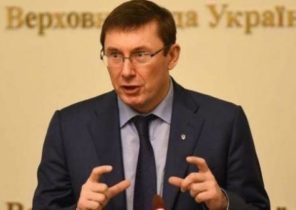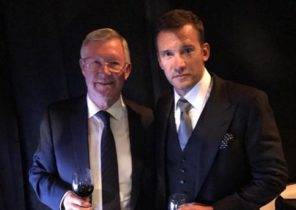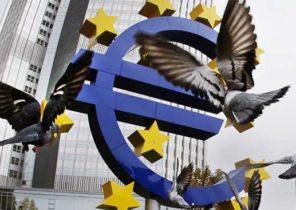
Russian engineers are going to check whether the Americans landed on the moon. Sergei Lavrov said that U.S. diplomats participated in the protests on the streets of Moscow. This is not the draft to the forgotten novel by Tom Clancy is the reality of today’s news feeds.
Over the past few weeks the Russian word kompromat, it seems, had to include foreign languages, along with babushka, vodka and sputnik. On the background of American scandal about the “fake” news, the European countries are increasingly wary of Russian interference in European elections. Should Europe give an answer? What should be the reaction of foreign countries to Pro-Putin propaganda, waged on their territory? And do not exaggerate if we force the “hand of the Kremlin?”
These issues, in recent years occupying today almost the first place in the international agenda, discussed at the beginning of January at a round table in club of journalists “Stereoscope”. In the discussion took part:
Moderator: Moritz Gathmann (Ostpol, RTVD, Spiegel Online).
Alexei Kovalev (Lapshennikova, Russia);
Vladimir Solovyov (NewsMaker, Moldova);
Gemma Porzgen (freelance journalist, Germany);
Vytautas, Bruveris (lrytas, Lithuania).
Moritz Gutmann: the Influence of Russian media companies of Your countries is assessed in very different ways. How is it you think is great? And how can this effect do we measure?
Gemma Porzgen: I think you can’t generalize. In each country the situation is different. In the case of Germany, it seems to me that the problem is quite exaggerated. Some so-called “experts” inflated the problem. The fact that no proper scientific work on this subject, which would give a balanced view. A lot of propaganda on the subject of propaganda, so to speak.
Vytautas, Bruveris: Lithuanian political establishment and mediamaster Russian influence estimates by far — is “information warfare” or “information aggression.” And the terms “war” and “aggression” are not used as metaphors, and direct and literal sense. Mean that preparations for armed aggression or “testing of soil”. And this “war” is a total and continuously-round the clock it uses not only the media, but other tools — from social networking to any cultural influence. How this would means that the effect of propaganda is very big and dangerous — at least potentially. Personally, I disagree and think it is very exaggerated a) psychological, b) political and b)ideological reasons. First and foremost, the quantity and the quality of Russian propaganda, which comes to Lithuania and for Lithuania, “war” will not name, and its real influence on major processes in the country and the society is marginal.
Ways of measuring this effect is very simple, but, of course, quite relative. First and foremost, it’s a different opinion polls and observations about what part of society in varying degrees adheres to Pro-Kremlin and anti-Lithuanian, anti-European, at last, anti-democratic views on major political and ideological questions. In my opinion, is from a quarter to a third of voters. This, of course, a lot. But how guilty of this Russian propaganda? I think the main problem is absence of state policy, integration and dialogue in relation to those social and ethnic groups, which are now the most disloyal Lithuania and the West in General and loyal to the Russian dictatorship.
Kovalev: “the Real impact of propaganda on major processes in the country and the society — the marginalized” — this is a very important point. I’m over the production of propaganda in Russia are watching closely, and I can say that its intensity in 2014 has not increased, but diminished — but it is precisely in 2016, Russian propaganda has become a global phenomenon, which everyone is afraid.
Thus, for example, where its influence lends itself to some objective assessments the type of television ratings, it is evident that no significant impact on public opinion it has not. The rating of Russia Today (hereinafter referred to as RT, approx. ed.) in Britain, for example, was in the region of hundredths of a percent, and remains. An absurd situation — the article about the danger of Russian propaganda read by more people than the very Russian propaganda.
Vytautas, Bruveris: About Russia, I would not agree. On the contrary, my impression is that this a real war mode with his company to maintain its aggressive mobilization and isolation only intensified. In the West — in the main countries, which are the real target of the Kremlin, it is enhanced too. But the impact, I agree, too much exaggerated. Why? The answer is simple — it has become a convenient method to write off their own punctures, the crisis and impotence of its own political elite and the establishment, scared to death, “rise of populism and far right extremism”. Here it is — the enemy and the main culprit! We have to fight with it and it will heal.
Alexei Kovalev: Well, I’m on the purely quantitative aspect: the budgets of state channels, and home and foreign are being reduced, projects are rolled up, and so on. However, RT that has just allocated an additional tranche of French broadcasting. Here also it is important to share what we’re talking about the Russian broadcast, aimed purely at the home audience (there is propaganda really crazy) about broadcasting, which is taking Russian-speaking (not necessarily Russian) inhabitants of near and far abroad, or foreign language broadcasts, aimed purely at foreign readers and audience. In the last paragraph, though, there are funny moments — if you look at all of the traffic of the rt site. com, you will find that most visitors yet in Russia itself.
Moritz Gutmann: And as the situation in Moldova?
Vladimir Solovyov: top-rated TV stations in Moldova are Russian. The three leaders: the First channel, RTR-Moldova, NTV. Recent data on the ratings of specific gear I have, but when a couple of years ago I was interested in this question, the most popular was “Field of dreams”, “Let them talk” and other entertainment content. I think today the situation is the same.
Moritz Gutmann: But I was told that the channels are not broadcast in Moldova, that it seems even forbidden, but there are Moldovan channels that rebroadcast of the content, and it is mainly entertainment content. Wrong?
Vladimir Solovyov: In Moldova, the Russian channels rebroadcast local channels. But there is not only entertainment content. View a program such as the rating of the TV channel Prime, which relays the First channel.
Alexei Kovalev: what’s the situation on Moldovan state TV broadcasting in Russian? I ask because in the beginning of 2016 I constantly called for comments by German journalists in connection with “girl: Liza”. And, it seems, I first learned that they have a certain number of hundreds of thousands or millions of compatriots whose native language is Russian, and they all look the First channel, and for the German media as if they never existed. That is not all, of course, will not simplify. I watched the Russian-speaking forums of Germany, and there the most common question (as everywhere where there are Russian-speaking Diaspora) — how to watch Russian TV, mother-in-law/grandmother asks? And often the answer was — no need to watch it, connect better grandmother National Geographic, the atmosphere in the family will be healthier.
Vladimir Solovyov: there is a public TV channel Moldova 1. It go news in Russian and there are still some programs also in Russian. All own production.
Moritz Gutmann: But as far as I know, he translates and Romanian channels, right? That is — nothing personal, just business?
Vladimir Solovyev: Yes, the funny thing is that the highest rated channel — the same Prime that rebroadcasts Russian First channel — belongs to the oligarch of the country and the leader of the ruling democratic party of Vladimir Plahotniuc. He and his party colleagues a lot of talk about “Russian propaganda” about the lack of alternatives of the way to the EU. And this does not prevent him to relay the notorious “propaganda” and earn.
Alexei Kovalev: And it so happens that the position of the Moldovan state TV on some sensitive issues such as the Crimea is in conflict with that which broadcast Russian TV channels?
Vladimir Solovyov: If I tightly monitor their content that could answer. But I don’t really follow. If you try to formulate the official position of the country on issues such as the Crimea, it is not uniform at least because the newly elected President considers Crimea Russian, what do not agree, for example, the Prime Minister.
Yes, it is necessary to say that public TV is no. There is a public TV channel. But in principle, almost all of the channels parsed by the people directly or indirectly linked to the policy. And used as tools in the political struggle. And “Russian tanks”, puffing diesel on the outskirts of Chisinau, as well as “geyropeytsy-molesters”, to play in this struggle an important role.
Alexei Kovalev: “it is necessary to say that public TV is no. There is a public channel” — this is also important because in Russia, no one seems to understand the difference between state and public media. That is, even many educated liberals think that BBC is the same as the First channel that is a propaganda mouthpiece, directly receiving instructions from the state. This public channel is arranged, roughly speaking, how accurately it conveys the mood in society and discussions on controversial issues? How in his work — openly or secretly — the government intervenes?
Vladimir Solovyov: Interfere, but it so… delicately. Here we explained how to construct the Moldovan television market.
The Russian media broadcasting to the whole world. Opinions about what their real influence the course of political events abroad that significantly diverge. Moritz Gutmann: And if the influence of the Russian-speaking media is not as great as it seems, who and why he is exaggerating then? And what this means? As I understand it in Lithuania again bans the Russian media?
Vytautas, Bruveris: the Reason why this “controversy” intensified in the West and is becoming a new trend, I have already mentioned. By the way, this is not new — is always repeated in times of crisis in the West — both internal and external. Their interests have political and military circles, and the media feel the need of the public to this kind of “vseobyasnyayuschego” and just sexy things. And in Lithuania, the reason is too, but they added to the provincial need to be first in the trenches of the war of civilizations and to have a decisive historical mission, as a quarter of a century ago.
Alexei Kovalev: Because the fight against “Russian propaganda” has become a fully-fledged industry, which many (including me, admittedly) had a successful career. Kind of silly of them to finish for a fraction of the research subject. It’s one of the reasons.
Vladimir Solovyov: I have already seen by the industry with budgets. They need to learn. As for Moldova, this theme is sold on the domestic market. In 2015m, the current mayor of Chisinau (the Chairman of the right-Liberal party) for the third time won the election thanks to the campaign fought mainly with Russian tanks. But the city has long been looks like there are street battles.
Gemma Porzgen: You’re absolutely right, Alex. So many people in the market who were engaged in security issues and who have lost their jobs. Now they saw a chance to get back to business. There are also lobbying groups like the Atlantic Council who began to organize all over Europe the same conference on the theme “the Growing influence of Russian propaganda”.
Alexei Kovalev: the Second reason: just something to forbid — it is such a typically Russian response, it is very funny to watch from Russia as the anti-Putin government in exactly the same behavior of Putin. The ban is a simple answer to complex questions to which the answer is not very desirable.
Vytautas, Bruveris: Yes, again, but then, let’s be clear and accurate in interpretation. Media? What media do not tell my Iskander. It is the propaganda of the dictatorship. But I am against a total ban her, after all. I don’t know why, just instinctively. I’m all for these channels were punished situational transgressed our law, as under the head. Until this is done, but the pressure to walk across the meadow with a scythe, of course, everything is amplified.
Alexei Kovalev: And that, “on the head” is not a dictatorship?
Vytautas, Bruveris: do Not distort. If the propaganda lies, incites national and social hatred, war and other means is clearly transgressed the laws of Lithuania in the field of media, which is one of the most liberal in Europe, should be punished. According to the law.
Alexei Kovalev: Well, that’s Russian propaganda, exactly the same can be said about Lithuanian (Latvian, Estonian) media.
Vytautas, Bruveris: But this is ridiculous and not even a subject of discussion. What, now we’re going to do Russian state media against the Baltic, and what they call illegal in these media?
Alexei Kovalev: and why not to understand? Even the most shameless propaganda is not 100% fiction (the infamous “crucified boy” is actually quite rare). And she invents problems and contradictions — it is albeit in a distorted form, but takes the existing ones. That is, if the First channel or in the “news of the week” hear horror stories about the infringement of the rights of Russian speakers in the Baltic States, the marches of the Nazis and the onset of NATO, a Russian-speaking audience is all watching and agree it would be nice to understand what motivates them.
Vladimir Solovyov: I problem native vnutrividovoi propaganda where it seems relevant. It distracts the public debate from the real issues in the direction of “bloody Putin”, “the damned Pindos” and “>”. And all is well — each policy has its own garden. Left-wing Pro-Russian forces fighting for the traditional family to Brussels, right-wing Pro-Western — integration with the insidious Kremlin. And so for a long time.
Alexei Kovalev: I Wonder how it blends — “bloody Putin” and “Europa”. In Russia it is necessary to choose — or you will have bloody Putin or Europa, and highly recommend you to choose first.
Vladimir Solovyov: what is Interesting is not the word. Here is pretty interesting. And with freedom of speech. With the independent media here is just not very difficult for them financially. The market is monopolized. Including advertising. NTV-Moldova (belongs to the Pro-Russian socialists) — clamps. On Prime (channel) — “bloody Putin”. Balance.
Alexei Kovalev: by the Way, I just watched the traffic of the three versions of Sputnik — Moldavian, Latvian and Lithuanian. Moldovan in the first place — 700 thousand visits per month (Russia is very small, but for Moldova, probably a lot), the Latvian 250 thousand a month, and this is a direct consequence of the ban — it does not hold up to 100 thousand, and with the Latvian, perhaps, that something is not right, because all the tools for the collection of traffic show some kind of statistical error.
Moritz Gutmann: And what does this mean?
Vladimir Solovyov: Well, the content are quite yellow. See e.g. this publication. As there traffic is not to chop? And if you look at the number of subscribers to the Moldovan Satellite in Facebook, we can see that there are very few of them: 3 thousand About “Classmates” don’t know, I’m not there. But in Moldova Facebook is very popular social network. More popular than Twitter.
Alexei Kovalev: Cool, that is so clean, clickbar, which is irrelevant to the promotion of political positions has not.
Vladimir Solovyev: Indeed. But I’m afraid if we compare the CTR of political texts with prostitutes, the victory of the latter.
Moritz Gutmann: Then my question is “What to do?” Anything at all? There are different options: 1. Well-known EU Disinformation review. 2. The proposal of the European endowment for Democracy: to create a factory of content and based on existing independent media to build the Russian-speaking competition of the state media. 3. Bans Russian media from the Satellite to the First Channel?
Gemma Porzgen: Some of the ideas in the report of the European Democracy Fund was reasonable. The main challenge in my opinion is this: we need to support journalism and media criticism. Especially the latter in many countries is not very well known. The citizen should be the ability to use the media properly and to separate the facts and bullshit. The media themselves should be more honest and have to control yourself, for example, with regard to the use of PR content. This includes “native advertisment” is also propaganda. That is fighting propaganda should be much broader than just blaming one group lebestky not pay attention to others.
Alexei Kovalev: the question “what to do” I would first of all himself said to “watch first” and think if I do everything right, not if I lack the facts to fit a predetermined conclusion, and so on. I’m not pointing fingers, I literally say to myself — I looked at the content of your site for a year and understand why I say “it is the same propaganda, only in reverse”. Without this, no “factory content” will not help. Ideological fact-checking leads to the fact that the gap between speaking and listening only will deepen, and everyone will just do that to accuse each other of “propaganda” and “fake news” (as is happening now).
I can tell you exactly what not to do is a variant of (3). In today’s world any information is impossible to deny, and its “spretnost” will only increase the attractiveness, as shown by the example of the Latvian Sputnik. And then there is side effect to be sure, each prohibition itself inefficient Russian propaganda writes itself into a definite plus. That is literally, editor in chief of RT, “Russia today” Margarita Simonyan carefully collects all articles about “the danger of Russian propaganda”, translates, publishes with triumphant comments like “see how they fear us”, and I have no doubt that based on the number of panic publications about himself gets the budget for next year.
Moritz Gutmann: What do you mean with “ideologization of factchecking”?
Alexei Kovalev: This is how Disinfo in the EU Review in the example above, or when a site like Politifact answers Clinton and trump the same question marks Mostly True for Clinton or Mostly False for trump, although they both said about the same thing.
Alexei Kovalev: the British example — Prexit covered two sites, infacts. org and fullfact. org, the first is clearly “partisan” (that is, openly supporting the party “to Stay in the EU”), the second is more neutral and objective. The first failed, both in traffic and in General, because the party had lost. And I understand why the first one failed — they, in theory, it was necessary to convince the supporters of the opposite camp, but they portrayed politicians for Breccia in the form of some of the goblins sitting in garbage cans, etc. it is Clear that the very audience with which they had to work, it was repulsive. That’s what I mean by ideological fact-checking — the assumption that the conditional “our” wrong can not be.
The main methods of propagation — division into “us” and “our”.
Vladimir Solovyev: I’m just your example of the result. The Website NewsMaker. First funded roughly speaking the state Department. Then EED, and now NED. We can’t boast the traffic of the Satellite 700 thousand per month, but I do know that they have become a source of information which you believe. And just continue to do their job to inform. On the checked information is in demand. From time to time we do something like stoppage, but rather parsing: take a sensational but false story and explain what’s wrong. And read it then thank you for that.
Moritz Gutmann: is there a possibility to make such a project commercially successful?
Vladimir Solovyov: Start from the end. While the commercial success it’s very sad. Us for two years. Launched in August 2014 in the midst of the regional crisis on all fronts. From him are still there not moved. Plus, as I already wrote, the market is monopolized, including advertising. Of course there is. And they have regularly read.
Moritz Gutmann: But isn’t that (relatively) “they are backed by the state Department” does not lead to what readers think of you as a “Pro-Western/paid”?
Alexei Kovalev: In Russia, it would definitely be damaging factor. Even among loyal audience. I’m not talking about being disloyal — I spend on a project of our own money every day and hear about the “prostitute state”.
Vladimir Solovyov: To a certain extent, Yes. Someone regularly unsubscribe in the comments: “Well, they were all clear, it’s an arm of the state Department”. But I assume that, first, no state Department will not go to our editorial policy. When Nuland affectionately scratched behind the ear of our main villain, we wrote — they then suomalaisissa do. Second, I no one could with the facts in hand to show our bias. This confirms that we are the hand of Moscow, the hand of the state Department, the hand of Moscow in the money of Washington.
Alexei Kovalev: Thank you for the reply, I know that when you accuse you at the same time the mouthpiece of the FSB and the FBI, then you’re doing it right.
Moritz Gutmann: Vytautas the way you look at the “fight the trolls” your Lithuanian “elves”, which recently wrote for the Washington Post?
Vytautas, Bruveris: Well, this is a private initiative. It is, of course, not without the support of state structures and, I suspect, but still, everyone in a free country can play how he wants. Yes, bots and trolls in our Facebook and the comments on the main portals, there are. And obviously, they’re doing their job. But their effect, in my opinion, meager as a “fight” with them. But the goal here is not this one. This is a show, social smoochas.
Cite three points. First: all Ministry of truth and other structures “garantirovany” and in fact the state propaganda is nonsense, a waste of taxpayers ‘ money and show-off politicians, government officials, military and their propagandists. As the “right” media. And most importantly — is a direct attack on the basic principles of democracy.
Second, the Problem, although not as apocalyptic, what it represents, is. The Kremlin will continue to try open and closed methods of influence on the domestic social and political processes of the main Western countries, using internal problems of these countries in the first place, migration, and terrorism. Obviously. We need to resist it. No other America than a strong and independent media, which directly would be involved in not only the deconstruction and analysis of the propaganda, but the Russian regime in General, not open. Then a strong and independent political elite. Critical thinking and democratic society. And then on the alphabetical list.
And third. I understand that in the nearest some positive change in this direction in our societies should not wait. Most likely deterioration. So the main hope — on the very Russian dictatorship. She’s all by herself, as always, to the end of the cut, to get wasted and fail. How could it be otherwise?
Moritz Gutmann: Thanks to everyone for the candid discussion.







